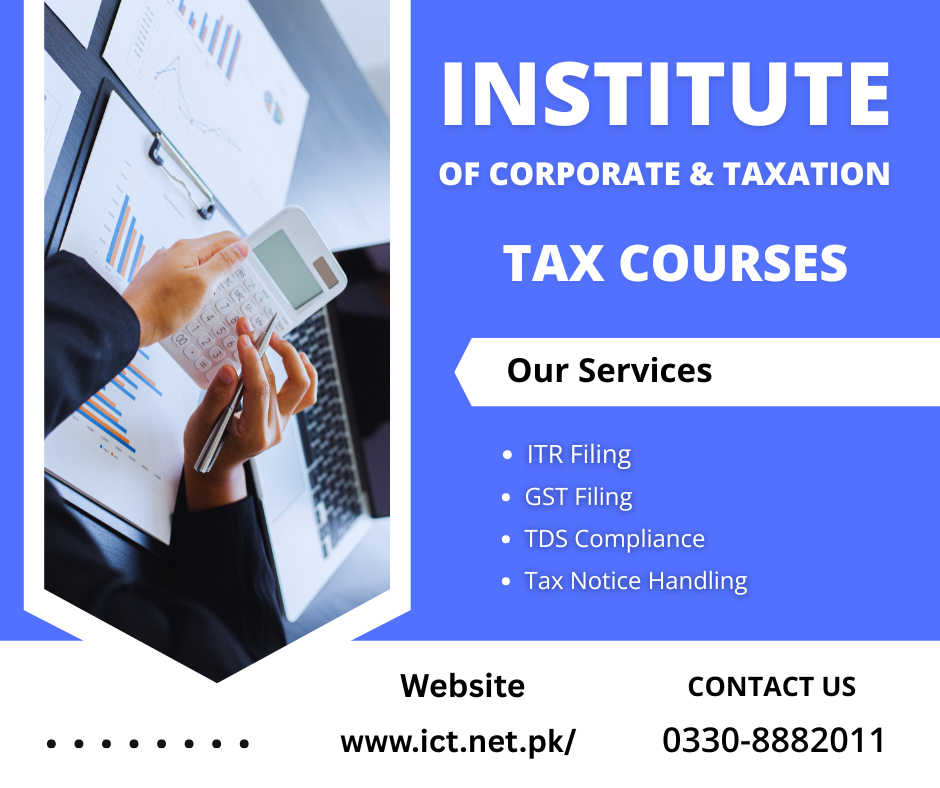Introduction: Why Tax Courses Could Be Your Smartest Investment Yet
In today’s fast-paced financial landscape, tax professionals are in higher demand than ever. Whether you're a recent graduate, a career-switcher, or an experienced accountant looking to upskill, tax courses and certifications offer a gateway to exciting, well-paying opportunities. With changing tax laws, increasing global compliance requirements, and the rise of remote work, investing in a tax education has become both a strategic and rewarding move.
But where should you start? Which courses offer the best return on investment? What certifications truly matter in today’s job market? Let’s explore how you can position yourself for success in the ever-evolving world of taxation.
Body: Everything You Need to Know About Tax Courses and Certifications
1. What Are Tax Courses and Who Are They For?
Tax courses range from beginner-level introductions to advanced programs designed for seasoned professionals. These programs cover key areas such as:
- Federal, state, and international tax regulations
- Corporate and personal tax planning
- Tax software and compliance tools
- Ethical tax practices
Ideal for:
- Accountants
- Financial advisors
- Entrepreneurs
- Law professionals
- Students interested in finance
2. Which Tax Certifications Are Most Respected in the Industry?
When it comes to standing out in the tax profession, the right certifications make all the difference. Here are five power credentials employers love:
- Enrolled Agent (EA): Certified by the IRS, highly respected for federal tax expertise
- Certified Public Accountant (CPA): A gold-standard credential with strong earning potential
- Chartered Tax Professional (CTP): Practical for those who want advanced tax preparation knowledge
- Advanced Tax Certificate Programs (via Coursera, UCLA, H&R Block)
- Diploma in Taxation (Offered globally by business schools and institutes)
3. What Should You Look for in a Tax Course?
To ensure your course is worth the investment, consider:
- Accreditation and recognition
- Instructor experience and credentials
- Real-world case studies and tools
- Exam preparation support (e.g., for EA or CPA)
- Flexibility: online vs in-person formats
Look for programs that provide hands-on learning, access to tax software, and continuing education credits.
4. How Long Does It Take to Become a Certified Tax Professional?
The timeline depends on your chosen path. For instance:
- EA: ~3–6 months of prep time
- CPA: Requires 150 college credit hours + exam (can take 1–2 years)
- CTP: Can be completed in under 6 months
5. What Are the Benefits of Getting Certified?
- Career advancement: Move into senior or specialized roles
- Increased salary: Certified professionals often earn 20–40% more
- Job security: Tax roles are consistently in demand
- Freelance potential: Launch your own tax consulting business
- Global reach: Certifications like EA and CPA are recognized internationally
6. FAQs About Tax Courses and Certifications
Q: Do I need a background in accounting to take tax courses?
A: No! Many programs start with foundational knowledge. However, some advanced certifications (like the CPA) require specific academic credits.
Q: Can I take tax courses online?
A: Absolutely. In fact, over 60% of tax learners now prefer self-paced online formats for their flexibility.
Q: What software should I learn?
A: Get familiar with QuickBooks, TurboTax, and Drake. Most programs include these in their training.
Q: Are tax certifications worth the money?
A: Yes. Consider it an investment: EAs can earn $60K–$100K, and CPAs even more.
Conclusion: Start Now and Reap Long-Term Rewards
The world of tax courses and certifications is vast—but incredibly rewarding. Whether you’re after a promotion, planning a career pivot, or looking to launch your own consultancy, the right course can set the foundation for your next big move. With the growing complexity of tax laws and rising global demand for tax professionals, there’s never been a better time to get certified.





Comments